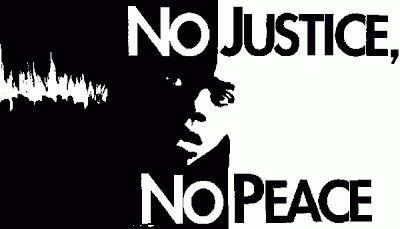Social justice is a sticky topic, because it goes beyond helping people and focuses on fixing systems. It doesn’t just feed people, it’s asks the question “why are poeple hungry” Because of this it’s frequently been accused of having a “liberal agenda.”

, knows a lot about Social Justice. She wrote the book on it, Literally. Social Justice Handbook: Small Steps for a Better World (IV Press, 2009)
. The book is, according to Shane Claiborne, “a cookbook for plotting goodness and stirring up holy mischief. Take a look and find a recipe for revolution. Then let us take it to the streets–interrupting injustice with grace, surprising the world with joy and whispering God’s love to a broken world.”
Before you can get to cooking it’s important to talk about what Social justice is and is not. The first two chapters of her book are devoted first: to setting the concept of Social Justice in a biblical frame work; and Second: To helping define what social justice is and is not. I think they are a great place to start the conversation
Interview with the Author
I had the honor of corresponding with Dr. Cannon recently and we talked a little bit about this whole issue.
Orant: Mae, The concept of Social Justice is controversial today. Pundits like Glen Beck have become notorious for their rhetoric against Social Justice and many are left wondering if the concept is more Socialist then Christian. It’s because of this that books like yours are important to publish, and I’m glad this one is here, not only to promote social justice, but to help define it. I have often had trouble articulating a way forward in social Justice to conservative friends and family members. Is Social Justice something “liberal?”
Dr. Cannon: Thank you for your post, and comments. I must confess, when I first saw your title, I thought “oh, no!”… But I was deeply encouraged and intrigued by the questions you pose. Your mention of Glen Beck and asking the question of where social justice fits in the context of our current political climate is a wonderful question!
To answer your question [about social justice]: I do not think that social justice is a “liberal” thing – although historically, it has been understood as such. All of Chapter 3 in my book is about the history of “social justice in the Americas” and talks about the division between the fundamentalist and social gospel movements in the early 20th century. At the start of the 1900s… fundamentalists and evangelicals largely viewed engaging in society as contradictory to their theological emphasis on righteous living. Some Christians held the belief that creation is fallen and broken (and thus beyond redemption)… thus emphasis should be placed on pursuing purity and enduring time on this earth in anticipation of the kingdom coming. Eschatological emphasis was very significant in dispensationalism and other theological frameworks. However, the latter half of the 20th century showed an emerging “new evangelicalism” where the pursuit of justice and reengagement with society became less bifurcated and more readily acceptable within the conservative theological framework of evangelicals and other Christians who had historically been ambivalent (at best) and hostile (at worst) to issues of justice.
Orant: Does the social justice framework rely on turning governments into agents of Morality?
Dr. Cannon: Governments as agents of morality – that’s a great question. Regardless of one’s views on social justice – governments (even if only in a limited respect) are agents of morality. In the US government system, for example, the Bill of Rights were established based on the ideals of liberalism (in the classic sense of the word, not speaking politically) – e.g. John Locke, Treatise on Government. Morality was imposed in the guarantee (and protection) of the “Rights of Man” (which of course were exclusive to white men through much of the history of the U.S.).
Orant: Where would a conservative, or Libertarian find there place in a Social Justice movement?
Dr. Cannon: A conservative’s place in the movement… I think that has been part of the problem. Organizations like Jim Wallis’ Call to Renewal/Sojourners has been less accessible to conservatives. I would suggest, however, that conservatives have been less willing to work ecumenically and pursue/advocate for justice alongside of others with differing theological beliefs. I hope that my book might make ideas about social justice more accessible to evangelicals (e.g. Christian conservatives).
Orant: Thank you, Mae
I’d love to hear reader’s opinions on this issue!
Please comment below!













